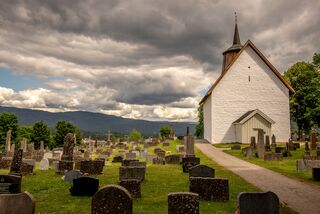Fear
18 Superstitions About Death
Why treat the dead the way we do?
Posted August 28, 2020 Reviewed by Ekua Hagan

What we don’t know or understand can make us fearful, and fear can lead to the development of superstitious behaviors and rituals. What is the thing that people fear the most? Death.
We humans have always had a fear of death and the dead. Authors and filmmakers have capitalized on this. They know that to scare someone, all they need to do is have a cemetery setting at night and a dead body or the undead lurking nearby. Many of the rituals that have developed over the years are based on these superstitious fears.
Superstitions about the dead developed as a way to protect the living from the dead rather than taking care of the dead. Historically, people have had a great deal of concern about the deceased’s spirit and its potential to harm the living. The following are some examples:
- After a death, windows were closed so the deceased’s soul could not fly out. Today, there are many who break with tradition and open a window so the soul can be free.
- Mirrors were covered after a death so that the spirit could not be trapped in it. Another superstition associated with covering mirrors is that the first to see their reflection in the mirror is the next to die. [1]
- Clocks were to be stopped at the time of the death.
- Coins were used to cover the deceased’s eyes. This originated in ancient Greece where coins were placed in the mouth of the deceased for payment to the underworld. More recently, coins were used to keep the eyes of the deceased closed as eyes were considered the windows of the soul. Therefore, it was important to not let the soul leave the body to harm the living.
- When the deceased was carried out of the house, it was always feet first. This was done to keep the deceased from looking into the house and getting another family member to join him. [2]
- After the death, the body was watched over by family and friends to ensure that the spirit did not leave the body. Watching over the dead was also a way to avoid a premature burial. Taphephobia was the term given to the fear of being buried alive, a not uncommon occurrence in the 19th century. [1]
- Those who watched over the body were instructed to cover their mouth if they yawned so the spirit could not enter their body.
- Covering the deceased with a sheet was another way the living protected themselves from the soul leaving the deceased’s body.
- Family pictures were also turned face down as another way to keep from being possessed by the spirit of the deceased. [3]
In addition to the superstitions about the dead’s body, there are also many superstitions associated with cemeteries and burial.
- Special mourning clothing, including veils, were worn as a way of hiding the mourner’s identity, protecting them from the dead. In England and the United States, clothing in black was associated with the grief of the mourner.
- When passing a cemetery, people were told to hold their breath, otherwise, they would not be buried.
- Pallbearers were to wear gloves so the spirit of the deceased could not enter the body.
- Bells ringing at a funeral were also ways to keep the spirit away.
- Rain on a funeral was felt to be a good omen that the deceased would go to heaven. If it thundered, that was even better as it indicated that the soul had made it to heaven.
- Tombstones were initially just rocks and stones used to mark where the deceased was buried. But over time, the stones became large monuments not only to mark the grave but to keep the spirit from escaping. [1]
- Taking flowers from a grave means that the spirit will haunt you.
- One should never whistle in a cemetery as it will summon the devil.
- Finally, some clever entrepreneur must have started this superstition: As long as the funeral bill remains unpaid, the dead will not rest in the grave. [3]
It seems that no matter how good a person someone was or how much they were loved in life, upon their death, they became an object of intense fear. Because of this fear, people believed that the dead who loved us in life now had the ability to harm us or even hasten our death. Superstitions were begun as a way of protecting the living from the dead. It gave and continues to give people a sense of control over the unknowable.
Today, death is coming out of the shadows and as people learn more about what to expect, some of these superstitions will no longer be needed. There will always be a mystery surrounding death, but we do not need to fear the departed.
References
1) Slaughter, April and Taylor, Troy (2018). Disconnected From Death: The Evolution of Funerary Customs and The Unmasking of Death in America. amazon.com services,LLC.


